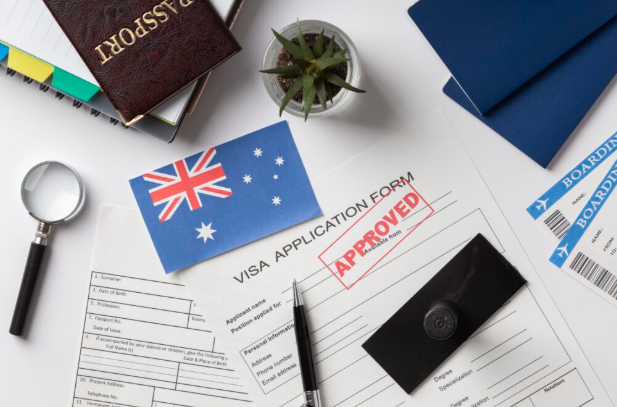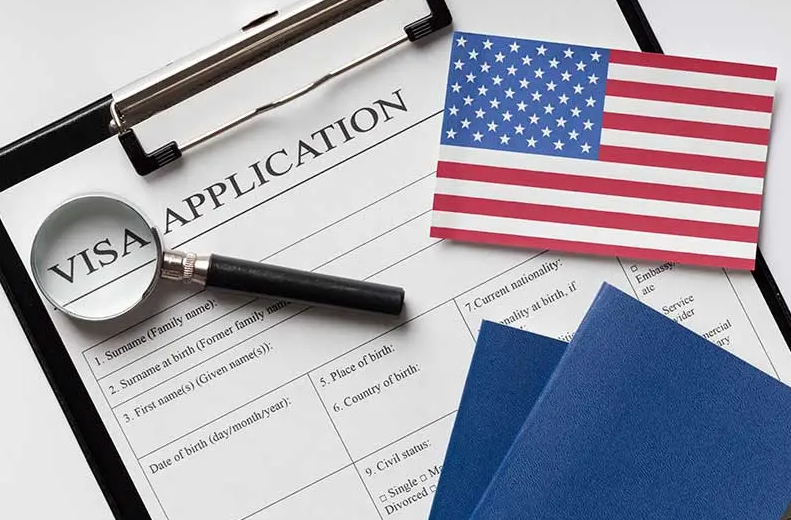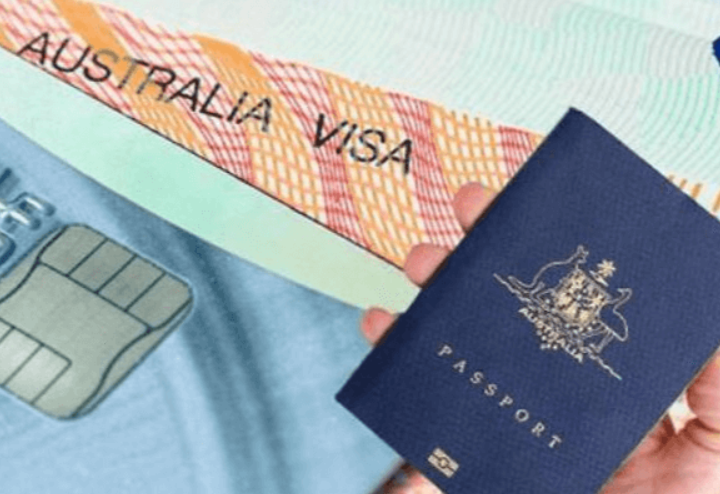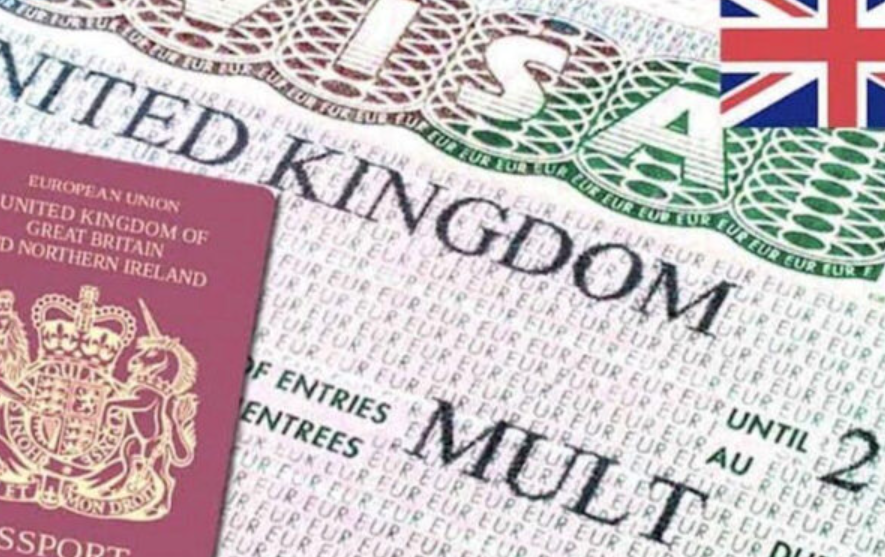Australia, with its robust economy and welcoming multiculturalism, is a magnet for skilled immigrants. But navigating the visa process can feel like traversing a vast outback. This comprehensive guide will illuminate the path to finding jobs in Australia with visa sponsorship opportunities for immigrants, turning your dreams into a tangible reality.
We understand the unique challenges you face, the sleepless nights spent scrolling through job boards, the quiet anxieties about leaving everything behind. This is a meticulously crafted roadmap, designed to illuminate your path towards securing jobs in Australia with visa sponsorship opportunities for immigrants. We’re not just offering information; we’re offering a lifeline, a comprehensive toolkit to navigate the intricacies of the Australian job market and visa system.
Imagine stepping off the plane, the warm Australian air embracing you, knowing you have a secure job waiting, a company that values your skills and is invested in your future. This guide is your first step towards transforming that vision into reality. We’ll delve deep into the industries thirsting for your expertise, dissect the often-confusing visa pathways, and equip you with the insider knowledge to make your application stand out in a competitive field.
Understanding Visa Sponsorship in Australia
The phrase “visa sponsorship” resonates with hope for many aspiring immigrants, representing a tangible pathway to realizing their Australian dreams. However, the intricacies of this process can be daunting. Let’s demystify visa sponsorship in Australia, breaking down the key concepts and providing a comprehensive understanding of this crucial element of skilled migration.
What is Visa Sponsorship?
At its core, visa sponsorship signifies a formal agreement between an Australian employer and a foreign national. The employer, recognizing a skills gap within their workforce, commits to nominating a suitable candidate for a specific visa category. This nomination essentially vouches for the candidate’s skills and their necessity to the Australian labor market.
Think of it as a partnership: the employer gains access to valuable expertise, and the employee secures the right to live and work in Australia. This symbiotic relationship is vital for Australia’s economic growth, allowing businesses to thrive and skilled individuals to contribute to the nation’s prosperity.
Why Employers Sponsor: Filling the Skills Gap
Australia, despite its robust economy, faces persistent skill shortages in various sectors. Employers turn to visa sponsorship when they cannot find qualified candidates within the local workforce. This highlights the value of specialized skills and the importance of aligning your expertise with Australia’s in-demand occupations.
The Employer’s Obligations: A Significant Commitment
Sponsoring a foreign worker is not a mere formality. Employers undertake significant obligations, including:
- Demonstrating Genuine Need: They must prove that they have genuinely attempted to recruit Australian citizens or permanent residents before resorting to sponsorship.
- Meeting Salary Requirements: They are required to pay the sponsored employee a market-rate salary, ensuring fair compensation. This is often dictated by the Temporary Skilled Migration Income Threshold (TSMIT).
- Providing a Safe and Fair Workplace: They must adhere to Australian workplace laws and regulations, ensuring a safe and equitable environment.
- Nominating the Visa: They are responsible for lodging the nomination application with the Department of Home Affairs, providing detailed information about the job and the candidate.
- Covering Sponsorship Costs: Often, employers will shoulder some of the costs associated with the visa application.
The Employee’s Responsibilities: Upholding the Agreement
While the employer plays a pivotal role, the employee also has responsibilities:
- Meeting Visa Requirements: They must meet all the eligibility criteria for the nominated visa, including skills assessments, English language proficiency, and health and character checks.
- Working in the Nominated Occupation: They are generally restricted to working in the occupation specified in their visa nomination.
- Adhering to Visa Conditions: They must comply with all visa conditions, including those related to employment, residence, and travel.
- Maintaining Accurate Records: Keeping accurate records of employment, qualifications, and visa-related documents is crucial.
Types of Sponsored Visas:
Understanding the different types of sponsored visas is crucial for both employers and employees:
- Temporary Skill Shortage (TSS) visa (subclass 482): This is the most common temporary work visa, allowing employers to sponsor skilled workers for up to four years. It is designed to address short-term skill shortages. There are different streams, including the short-term stream and the medium-term stream.
- Employer Nomination Scheme (ENS) visa (subclass 186): This is a permanent visa, allowing employers to sponsor highly skilled workers for long-term positions. It offers a pathway to permanent residency. Ther are the direct entry, temporary residence transition, and agreement streams.
The Nomination Process: A Detailed Examination
The nomination process involves a thorough assessment of the employer’s need for a foreign worker and the candidate’s suitability for the role. This includes:
- Labour Market Testing (LMT): Employers must demonstrate that they have made genuine attempts to recruit Australian workers.
- Skills Assessment: The candidate’s qualifications and experience are assessed against Australian standards.
- Character and Health Checks: Both the employer and the employee undergo character and health checks.
- Financial Capacity: The employer’s financial capacity to support the sponsored employee is assessed.
Navigating the Complexities: Seeking Expert Guidance
The visa sponsorship process can be complex and time-consuming. Seeking professional advice from a registered migration agent can significantly increase your chances of success. They can provide guidance on visa eligibility, application requirements, and the nomination process.
The Importance of Transparency and Compliance:
Both employers and employees must adhere to strict ethical and legal standards. Any misrepresentation or non-compliance can have severe consequences, including visa cancellation and penalties.
Understanding visa sponsorship in Australia is crucial for anyone seeking to build a career in this dynamic country. By grasping the intricacies of the process, you can navigate the path to your Australian dream with confidence and clarity.
Key Requirements for the Jobs in Australia with Visa Sponsorship Opportunities for Immigrants
Securing a job in Australia with visa sponsorship is a significant achievement, but it’s not a walk in the park. Employers and the Department of Home Affairs have specific requirements that you must meet. Understanding these prerequisites is crucial for navigating the process successfully and maximizing your chances of landing that coveted opportunity.
-
Skills and Qualifications: Aligning with Australian Standards
- Occupation Lists: Australia maintains occupation lists that specify the skills in demand. Your occupation must be listed on the relevant skilled occupation list for the visa you are applying for. These lists are subject to change, so staying updated is paramount.
- Skills Assessment: Many occupations require a formal skills assessment conducted by a designated assessing authority. This assessment verifies that your qualifications and experience meet Australian standards.
- Educational Qualifications: Your educational qualifications must be recognized in Australia. You may need to have your qualifications assessed by a relevant authority.
-
English Language Proficiency: Communicating Effectively
- IELTS, PTE, or OET: Most visa categories require proof of English language proficiency. The International English Language Testing System (IELTS), Pearson Test of English (PTE), or Occupational English Test (OET) are commonly accepted tests.
- Minimum Scores: Each visa subclass has specific minimum score requirements for English language proficiency. Ensure you meet the required scores before applying.
- Communication Skills: Beyond meeting the minimum test scores, employers value strong communication skills. You must be able to communicate effectively in the workplace.
-
Work Experience: Demonstrating Practical Expertise
- Relevant Experience: Employers seek candidates with relevant work experience in their field. The amount of experience required varies depending on the occupation and visa subclass.
- Documenting Experience: You must be able to provide evidence of your work experience, such as employment letters, pay slips, and performance reviews.
- Transferable Skills: Highlight your transferable skills, demonstrating how your experience can benefit the employer.
-
Health and Character Requirements:
- Health Examination: You will be required to undergo a medical examination to ensure you meet Australia’s health requirements.
- Police Clearance Certificates: You must provide police clearance certificates from all countries where you have lived for 12 months or more in the past 10 years.
- Good Character: The Department of Home Affairs assesses your character to ensure you are of good standing.
-
Employer Sponsorship:
- Genuine Position: The employer must demonstrate that the position is genuine and that they have made genuine attempts to recruit Australian workers.
- Financial Capacity: The employer must demonstrate their financial capacity to support the sponsored employee.
- Nomination Application: The employer must lodge a nomination application with the Department of Home Affairs, providing detailed information about the job and the candidate.
- Labour Market Testing (LMT): The employer is required to test the labour market to demonstrate that they couldn’t find a suitable local candidate.
-
Visa Specific Requirements:
- Subclass 482 (TSS) Visa: This visa has specific requirements related to the occupation, salary, and length of stay.
- Subclass 186 (ENS) Visa: This permanent visa has more stringent requirements, including a higher level of skills and experience.
- Subclass 190 (Skilled Nominated Visa): This visa requires state or territory nomination, and each jurisdiction has its own specific requirements.
-
Financial Capacity:
- Proof of Funds: You may be required to provide evidence of sufficient funds to support yourself and your family during your initial period in Australia.
- Financial Stability: Employers may also assess your financial stability to ensure you are a reliable and responsible employee.
-
Adhering to Australian Workplace Standards:
- Understanding Australian Laws: Familiarize yourself with Australian workplace laws and regulations.
- Respecting Workplace Culture: Demonstrate respect for Australian workplace culture and practices.
- Commitment to Fair Work: Show your commitment to fair work principles and ethical conduct.
-
Registration and Licensing:
- Professional Registration: Certain occupations, such as healthcare and engineering, require professional registration with relevant Australian bodies.
- Licensing Requirements: Some occupations may require specific licenses to practice in Australia.
Meeting these key requirements is essential for securing jobs in Australia with visa sponsorship opportunities for immigrants. Thorough preparation, accurate documentation, and a proactive approach are crucial for a successful application. Remember to stay updated on the latest visa regulations and requirements, as they can change frequently.
Jobs in Australia with Visa Sponsorship Opportunities for Immigrants
The dynamic economy in Australia presents a wealth of career opportunities for skilled immigrants, particularly in sectors facing critical skill shortages. Let’s explore some of the most in-demand professions where employers actively seek and sponsor international talent, illuminating the diverse pathways to building a successful career down under.
-
Registered Nurse (RN):
Average Salary: $75,000 – $95,000 AUD per year.
The Australian healthcare system faces a persistent demand for skilled Registered Nurses, particularly in areas like aged care, critical care, and mental health. Visa sponsorship is readily available for qualified RNs due to this shortage. The role involves providing direct patient care, administering medications, monitoring vital signs, and collaborating with multidisciplinary healthcare teams. Strong communication skills, empathy, and the ability to work under pressure are essential.
Registration with the Nursing and Midwifery Board of Australia (NMBA) is mandatory, requiring overseas-trained nurses to undergo skills assessment and demonstrate English language proficiency. The career trajectory for RNs in Australia is promising, with opportunities for specialization and advancement into management or advanced practice roles.
-
Software Developer:
Average Salary: $80,000 – $120,000 AUD per year.
Australia’s burgeoning tech industry is constantly seeking talented Software Developers to build and maintain innovative software applications. Visa sponsorship is a common pathway for skilled developers proficient in languages like Java, Python, C++, and JavaScript. The role encompasses designing, coding, testing, and debugging software, as well as collaborating with cross-functional teams.
Employers value developers with strong problem-solving skills, a passion for technology, and the ability to adapt to evolving industry trends. The demand for specialized skills, such as cloud computing and cybersecurity, is particularly high. Continuous learning and professional development are crucial for staying competitive in this dynamic field.
-
Civil Engineer:
Average Salary: $85,000 – $130,000 AUD per year.
Australia’s infrastructure development projects, including roads, bridges, and buildings, create a consistent demand for Civil Engineers. Visa sponsorship is frequently offered to engineers with expertise in structural design, project management, and construction supervision.
The role involves planning, designing, and overseeing the construction of infrastructure projects, ensuring compliance with safety and environmental regulations. Strong analytical skills, attention to detail, and the ability to work in diverse environments are essential. Registration with Engineers Australia is often required. The Australian government’s investment in infrastructure projects ensures a stable and promising career path for Civil Engineers.
-
Electrician:
Average Salary: $70,000 – $90,000 AUD per year.
The construction and maintenance industries in Australia rely heavily on skilled Electricians. Visa sponsorship is available for qualified tradespeople with experience in electrical installations, repairs, and maintenance. The role involves installing and maintaining electrical systems in residential, commercial, and industrial settings, ensuring compliance with safety standards.
A Certificate III in Electrotechnology Electrician and a valid electrical license are required. The demand for electricians is consistently high, particularly in regional areas and during construction booms.
-
Aged Care Worker:
Average Salary: $55,000 – $70,000 AUD per year.
Australia’s aging population has led to a significant demand for Aged Care Workers. Visa sponsorship is offered to individuals with compassion, patience, and a genuine desire to care for the elderly. The role involves providing personal care, assisting with daily activities, and supporting the emotional well-being of residents in aged care facilities. A Certificate III in Individual Support (Ageing) or equivalent qualification is often required. The rewarding nature of this role and the growing demand for aged care services make it a stable career option.
-
Mining Engineer:
Average Salary: $100,000 – $150,000+ AUD per year.
Australia’s vast mineral resources create a high demand for Mining Engineers. Visa sponsorship is common for engineers with expertise in mine planning, design, and operations. The role involves overseeing the extraction of minerals and resources, ensuring safety and efficiency. Strong technical skills, problem-solving abilities, and the ability to work in remote locations are essential. The mining industry offers lucrative salaries and opportunities for career advancement.
-
Data Analyst:
Average Salary: $80,000 – $120,000 AUD per year.
With the increasing reliance on data-driven decision-making, Data Analysts are in high demand in Australia. Visa sponsorship is available for analysts with expertise in data mining, statistical analysis, and data visualization. The role involves collecting, analyzing, and interpreting data to provide insights and support business decisions. Strong analytical skills, proficiency in data analysis tools, and the ability to communicate complex findings are essential. The demand for Data Analysts is expected to grow significantly in the coming years.
-
Mechanical Engineer:
Average Salary: $85,000 – $130,000 AUD per year.
The manufacturing, construction, and mining industries in Australia require skilled Mechanical Engineers. Visa sponsorship is offered to engineers with expertise in designing, developing, and maintaining mechanical systems. The role involves working on projects related to machinery, equipment, and energy systems. Strong technical skills, problem-solving abilities, and the ability to work in diverse environments are essential. Registration with Engineers Australia is often required.
-
Chef:
Average Salary: $60,000 – $80,000 AUD per year.
Australia’s vibrant culinary scene creates a demand for skilled Chefs. Visa sponsorship is available for chefs with expertise in various cuisines and culinary techniques. The role involves planning menus, preparing and cooking food, and managing kitchen operations. Strong culinary skills, creativity, and the ability to work in a fast-paced environment are essential.
-
University Lecturer:
Average Salary: $90,000 – $140,000 AUD per year.
Australian universities seek qualified lecturers to contribute to research and teaching. Visa sponsorship is offered to academics with expertise in various disciplines. The role involves delivering lectures, conducting research, and supervising students. A PhD and a strong publication record are typically required.
-
Cybersecurity Specialist:
Average Salary: $90,000 – $140,000 AUD per year.
The increasing threat of cyberattacks has created a high demand for Cybersecurity Specialists in Australia. Visa sponsorship is available for professionals with expertise in network security, threat analysis, and incident response. The role involves protecting computer systems and networks from unauthorized access and cyber threats. Strong technical skills, analytical abilities, and knowledge of security protocols are essential.
-
Plumber:
Average Salary: $70,000 – $90,000 AUD per year.
The construction and maintenance industries in Australia require skilled Plumbers. Visa sponsorship is available for qualified tradespeople with experience in installing and repairing plumbing systems. The role involves working on water supply, drainage, and gas systems. A Certificate III in Plumbing and a valid plumbing license are required.
-
Medical Practitioner (General Practitioner/Specialist):
Average Salary: $150,000 – $300,000+ AUD per year.
Australia faces shortages of both General Practitioners and Medical Specialists. Visa sponsorship is readily available to qualified doctors. The role involves diagnosing and treating illnesses, providing medical advice, and managing patient care. Registration with the Medical Board of Australia is mandatory.
-
Project Manager:
Average Salary: $100,000 – $150,000 AUD per year.
Many industries in Australia require skilled Project Managers. Visa sponsorship is offered to professionals with expertise in planning, executing, and closing projects. The role involves managing project resources, timelines, and budgets. Strong leadership, communication, and organizational skills are essential.
-
Heavy Machinery Operator:
Average Salary: $80,000 – $110,000 AUD per year.
The mining and construction industries in Australia require skilled Heavy Machinery Operators. Visa sponsorship is available for operators with experience in operating heavy equipment, such as excavators, bulldozers, and cranes. The role involves operating heavy machinery on construction and mining sites. A relevant heavy machinery operator license is required.
By understanding the diverse range of job opportunities and the specific requirements for each profession, you can tailor your job search and increase your chances of securing a visa-sponsored position in Australia.
The Future of Jobs for Immigrants in Australia with Visa Sponsorship Opportunities
The landscape of work is constantly evolving, and Australia’s approach to skilled migration is no exception. As technology advances, demographics shift, and global economies intertwine, the future of jobs in Australia with visa sponsorship opportunities for immigrants is poised for significant transformation. Understanding these trends is crucial for aspiring immigrants to strategically position themselves for long-term success.
-
The Tech Revolution and Digital Skills:
- Growing Demand for Specialized Tech Roles: Australia’s commitment to digital transformation will fuel a surge in demand for highly specialized tech roles. Expect increased opportunities for AI specialists, machine learning engineers, cybersecurity experts, and data scientists.
- Remote Work and Global Talent: The rise of remote work opens doors for international talent, allowing Australian companies to access a wider pool of skilled professionals. This trend may lead to more flexible visa arrangements and a greater emphasis on digital skills over geographical location.
- Emphasis on Digital Literacy: Regardless of the industry, digital literacy will become increasingly essential. Immigrants who possess strong digital skills, including data analysis, software proficiency, and online communication, will have a significant advantage.
-
The Aging Population and Healthcare:
- Continued Demand for Healthcare Professionals: Australia’s aging population will continue to drive demand for healthcare professionals, particularly nurses, aged care workers, and allied health specialists. Visa sponsorship will remain a crucial pathway for these essential workers.
- Focus on Telehealth and Digital Healthcare: The integration of telehealth and digital healthcare solutions will create new opportunities for immigrants with expertise in these areas.
- Increased Need for Specialized Aged Care: As the population ages, the demand for specialized aged care services, such as dementia care and palliative care, will rise.
-
The Green Economy and Sustainable Practices:
- Growing Demand for Renewable Energy Professionals: Australia’s transition to a green economy will create a surge in demand for renewable energy engineers, environmental scientists, and sustainability consultants.
- Focus on Sustainable Infrastructure: The development of sustainable infrastructure projects will require skilled professionals in areas such as green building design, waste management, and environmental engineering.
- Increased Demand for Green Skills: All sectors will increasingly prioritize sustainability, leading to a demand for professionals with “green skills” and knowledge of environmental regulations.
-
The Evolving Nature of Trades:
- Advanced Trades and Automation: The trades sector will undergo significant transformation with the integration of automation and advanced technologies. Skilled tradespeople with expertise in robotics, automation, and digital fabrication will be in high demand.
- Focus on Sustainable Construction: The construction industry will prioritize sustainable practices, leading to a demand for tradespeople with expertise in green building materials and energy-efficient construction techniques.
- Continued Demand for Traditional Trades: While automation will impact the trades sector, traditional trades like plumbing and electrical work will remain essential.
-
Regional Migration and Skill Distribution:
- Increased Focus on Regional Development: The Australian government is likely to prioritize regional migration to address skill shortages in rural and remote areas. This could lead to more visa sponsorship opportunities in regional locations.
- Incentives for Regional Settlement: Expect to see more incentives for immigrants to settle in regional areas, such as lower visa fees and access to regional development programs.
- Focus on Skill Matching in Regional Areas: Efforts to match skilled immigrants with job opportunities in regional areas will increase, ensuring that their skills are utilized effectively.
-
The Importance of Adaptability and Lifelong Learning:
- Emphasis on Transferable Skills: The ability to adapt to changing job markets and acquire new skills will be crucial. Immigrants who possess strong transferable skills, such as communication, problem-solving, and critical thinking, will be highly valued.
- Lifelong Learning and Upskilling: Continuous learning and upskilling will be essential for staying competitive in the evolving job market. Immigrants who are committed to professional development will have a significant advantage.
- Cultural Intelligence: As workplaces become increasingly diverse, cultural intelligence, the ability to understand and adapt to different cultural contexts, will be highly valued.
-
Streamlining the Visa Process:
- Digitalization of Visa Applications: The Australian government is likely to continue to digitalize the visa application process, making it more efficient and user-friendly.
- Focus on Skill-Based Migration: The visa system will likely place a greater emphasis on skill-based migration, prioritizing applicants with in-demand skills and qualifications.
- Increased Transparency and Predictability: Efforts to increase transparency and predictability in the visa process will create a more welcoming environment for skilled immigrants.
The future of jobs in Australia with visa sponsorship opportunities for immigrants is bright, but it requires adaptability, continuous learning, and a proactive approach. By understanding the evolving trends and positioning themselves strategically, aspiring immigrants can unlock the door to a rewarding career and a fulfilling life in Australia.
Conclusion
Going after jobs in Australia with visa sponsorship opportunities for immigrants demands diligence, strategic planning, and a thorough understanding of the visa process and in-demand skills. While challenging, the rewards of building a career and life in Australia are substantial. By focusing on relevant qualifications, showcasing adaptability, and staying informed about evolving industry trends, aspiring immigrants can successfully navigate the path to their Australian dream.






